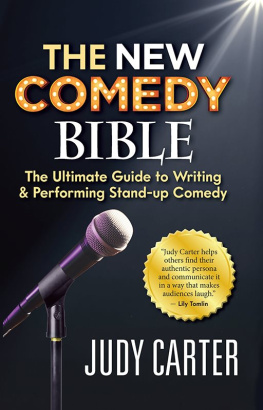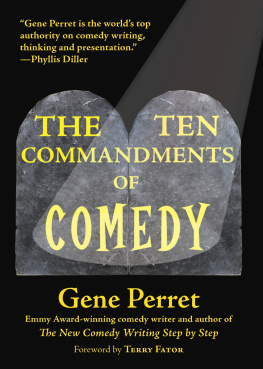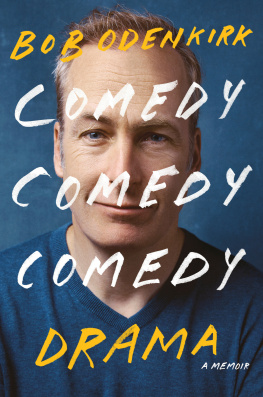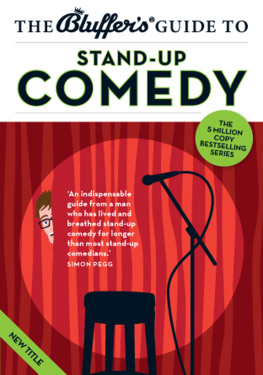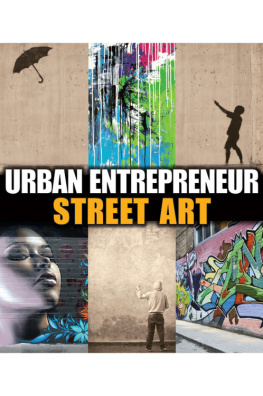
Imagineyou're telling a funny story to a group of friends. You watch as they all startlaughing hysterically. You see them cracking up, grinning, wiping tears oflaughter from their eyescompletely losing it.
Whyare they reacting this way? They're all reacting to a shared experience of somekind, and the way you've turned it on its head, or presented it in a new way.

That, plus the way you said it, your expression, thewords you chose to useyou nailed the delivery, and it's just funny!
Butwhat is "funny?" To get alaugh out of anyone, you have to know what sort of things they think are funny.Successful comedians can connect to a group of people by presenting the worldin ways you might not have thought of. The best comedians take these relatable elements,twist them into knots for your entertainment, and mix in the element of irony.Irony is the expression of meaning by using language that normally signifiesthe opposite.


For example, finding the humor in unfortunate eventsis a form of irony. If your friend falls down a flight of stairs, grunting andmaking funny noises every time he hits a step, this could be ironically funny. As long as he isn'tseriously hurt, you both will probably start laughing the moment he stands backup.
Comedyhas existed since the first person laughed, which waswell, a really long timeago. But as a form of entertainment, comedy began in the early 1900s, withvaudeville. Vaudeville was a type of "variety" entertainment, similarto many of today's late-night talk shows. It was made up of different acts; comedianswere only one act in addition to musicians, dancers, magicians, acrobats, andeven actors performing short skits or scenes from plays. The comedians invaudevillian acts typically used simple subject matter and quirky characters toget the audience to laugh.
Oneof the most important figures in comedic history came from vaudeville. His namewas Julius "Groucho" Marx. Born in 1890, he began his vaudevillecareer as a singer in 1905, when a totally random event changed his lifeforever. In 1909, Julius Marx was part of a singing act with two of hisbrothers. Unfortunately, the trio wasn't very popular... Until one night, aftera seriously bad performance,they started cracking jokes on stageand the crowd loved it! Thanks to this onelucky performance, Marx and his brothers saw their opportunity for successsothey dropped the singing and became strictly a comedy act. The Marx brothersbecame one of the most famous vaudeville acts of all time, and they even wenton to have three hit plays on Broadway.

Broadway had never hosted an act that was solely comedy, so this was ahuge dealand a sign of things to come.
TheMarx brothers' comedy acts were beyond popular... But why? What made them so funny? Whatpeople loved about the Marx brothers was their physical comedy, quick wordplay,and character acting. Julius ("Groucho"), and his brothers Leonard("Chico") and Arthur ("Harpo") were Italian and Irish, andthey played on all the stereotypes they knew audiences would relate to. Grouchowas known for his quick-talking wise-guy character, who had a painted-onmustache and eyebrows, and large glasses. This is where the iconic costume"disguise" of fake eyeglasses with attached eyebrows, nose, andmustache comes from! Groucho used this "disguise" constantly. Heunderstood that it was hilariousbecause, of course, a person isn't reallyconcealed by wearing the get-up. They just think they are.
Althoughcomedians like the Marx brothers were known for being loud and fast-talking,comedy as a movement began slowly. Vaudeville gave comedy its first real venue,and it did well there; but the comedian still hadn't made it to center stage.


However,it quickly became obvious that comedy would become way too popular for onevenue. Soon, it was being performed in all sorts of places. And as the venuesgrew in the 1930s, '40s, and '50s, the variety of topicsand the star power ofthe comediansgrew, too. Entrepreneurs of comedy saw their chance to shine, andthey jumped at it.
Sincethen, comedy has changed the world way more than most people think. When itcomes to uncomfortable but important issues, comedians get the ball rolling bybeing unafraid to tackle those topics, and taking a stand for their opinionswhile they do. Comedy has given performers a way to break down these barriersmore than any other form of entertainment.


Fromsmall folk clubs and theaters, to TV and radio, comedians keep putting new,bold material into their routines, and bringing them right into your home.Comedy became a vehicle for change, a place to have taboo discussions, and anopen forum to discuss serious topics.

Whilecomedy started out as a career mainly dominated by white performers, likeGroucho Marx, that all changed during the 1970s. After the Civil RightsMovement, American culture was dominated by African Americans. Through theircomedy acts, these talented performers were vital to Americans' views aboutrace and equality. It was during this time that comedy changed into an actual career,and a form of entertainment all its own. To this day, stand-up comedy in the1970s is mostly where our idea of "modern comedy" comes from.




